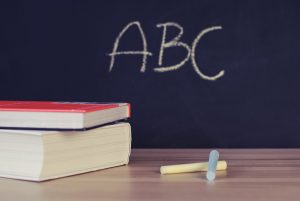Even though marriage equality has become the law of the land, there are still 30 states that lack explicit employment discrimination protections for LGBTQ workers. California, thankfully, isn’t one of them. The U.S. Supreme Court is slated to render a decision in two cases wherein plaintiffs argue that Title VII protections against gender discrimination should extend to LGBTQ workers. (Justice Neil Gorsuch remarked during oral arguments that the case was “really close.”)
That decision will have a huge impact for LGBTQ public school teachers and employees.
History of LGBTQ Discrimination in Schools
Schools have a long history of discrimination against gay and lesbian teachers – from public elementary schools to prestigious universities. In the 1950s and 1960s, Florida lawmakers created a committee designed to identify and fire educators who were gay and lesbian. Some 200 LGBTQ teachers lost their jobs.
In 1978, a California state lawmaker sponsored a ballot referendum that would have banned gay and lesbian teachers from working in public schools. It further would have allowed termination of any teachers who supported LGBTQ rights – regardless of their own sexual orientation. The referendum was struck down by a 10 percent margin of voters.
That same year, Oklahoma passed a law that allowed schools to fire teachers who engaged in “public homosexual activity,” as well as advocating for LGBTQ rights. The latter half was struck down for free speech rights violations, but the first part was upheld by a federal appellate court – a decision the U.S. Supreme Court affirmed in 1985. That same year, the SCOTUS declined to review an appellate court’s decision to allow firing of a bisexual high school guidance counselor in Ohio.
Fast-forward to today, and the same kinds of things are still happening.
LGBTQ Teachers Still Face Workplace Discrimination
In Texas, an elementary school art teacher was placed on administrative leave after showing students a picture of her fiancee during a “get to know your teacher” presentation. NBC News reported the teacher began working at the school district roughly a decade ago. In that time, she was twice selected for Teacher of the Year at her school. But in September 2017, a parent complained to the school board that the teacher was “promoting a homosexual agenda” by showing the classroom a picture of her then-girlfriend (now wife). The school district then asked her to resign. She refused. And then she sued.
The school district denied the allegations, saying it supports its LGBT staff and has for decades. However, the issue was whether the teacher violated the school district’s guidelines that require controversial subjects to be taught in an objective and impartial manner. Teachers aren’t supposed to “transmit personal beliefs” in the classroom. After filing her lawsuit, the school district transferred her to a nearby high school.
The school district recently settled with the teacher for $100,000 – $10,000 of which she’s committed to donating to a student-centered LGBTQ non-profit. Her attorney is donating $10,000 of his fees to a national LGBTQ advocacy organization.
Even though Texas doesn’t have a law that explicitly prohibits discrimination on the basis of gender identity or sexual orientation, some have argued that actions like these nonetheless violate teachers’ constitutionally-protected rights. Teachers today are increasingly fighting back. However, back in the 1950s and 1960s, teachers had little recourse for discrimination.
Today is different, particularly in states like California that explicitly extend anti-discrimination protections (through the California Fair Employment and Housing Act).
Unfortunately, a 2018 survey by GLAAD revealed nearly one-third of non-LGBTQ Americans said they would be very or somewhat uncomfortable to have their child taught by an LGBTQ teacher. Some teachers say they have been reluctant to come out, or in some cases have even moved to states that have explicit LGBTQ worker protections.
Contact the employment attorneys at Nassiri Law Group, practicing in Orange County, Riverside and Los Angeles. Call 949-375-4734.
Additional Resources:
LGBTQ Teachers Await Decision on Discrimination Protections, Jan. 14, 2020, By Madeline Will, Education Week
 Orange County Employment Lawyers Blog
Orange County Employment Lawyers Blog

